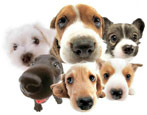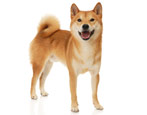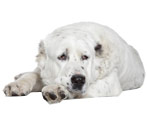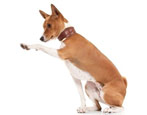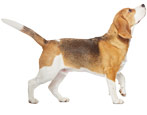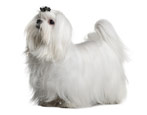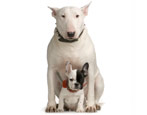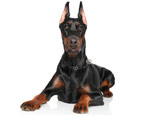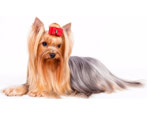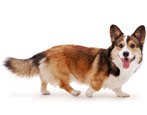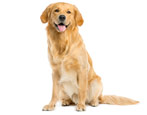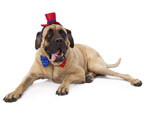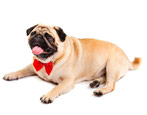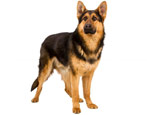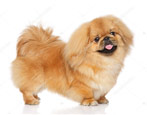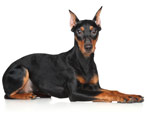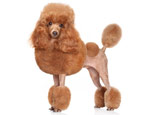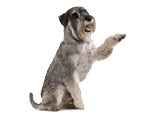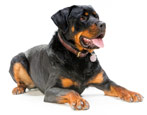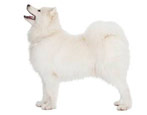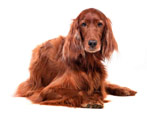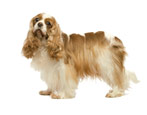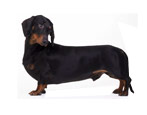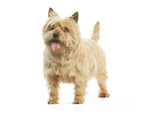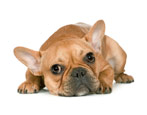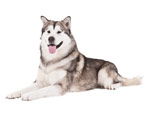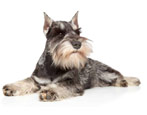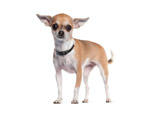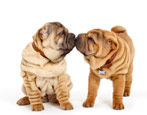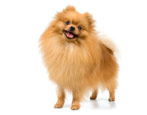How to wean a puppy from biting?
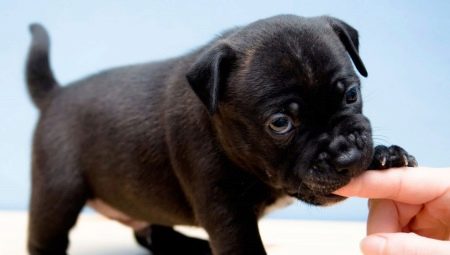
When puppies are born, they very quickly begin to grow and develop, and one of the stages of their maturation is the study of the world around them. Curious four-legged babies can't wait to see everything, smell and even taste it - this is the only way the dog receives information about what is around it. For a puppy, most of the cognitive processes are carried out during play, and it does not matter whether the dog is playing with himself, with his brothers and sisters, or with a person. Often, with excessive enthusiasm for the game, puppies begin to behave aggressively and bite their owner.
If you encourage such actions of the dog, then her misbehavior will soon become a serious problem for all family members. And to prevent this from happening, the pet needs to be taught to the necessary rules of behavior from an early age.
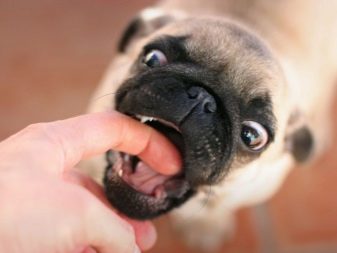
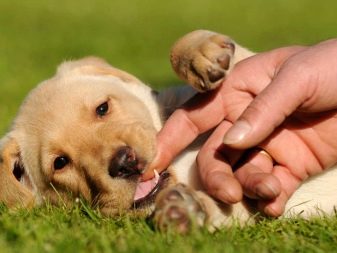
Reasons for behavior
Despite the fact that domestic dogs look cute and kind, in their nature the genes of a predator and a hunter are initially embedded, and this factor manifests itself in any dog already in puppyhood.
For a better understanding of your pet, you need to know the reasons that force him to perform certain actions.
Experts studying the psychology of animals identify the following main incentives that move the puppy in those moments when he bites:
- acquaintance of the dog with the environment;
- one of the forms of communication between a dog and people and other animals;
- inviting someone to the game and the process of the game itself;
- the puppy's study of its strengths and capabilities;
- expression of dissatisfaction;
- forced, from the point of view of the dog, defensive aggression;
- bite formation and the process of changing the milk formula of the teeth to a permanent dentition;
- lack of skills for correct behavior.
Experienced breeders know that puppies behave differently depending on the breed. As a rule, representatives of service dogs and large dogs most often behave with restraint and sedateness, while a representative of a miniature breed plays and rages selflessly, from the heart.
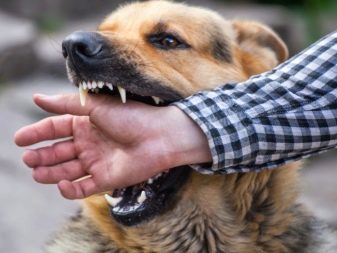
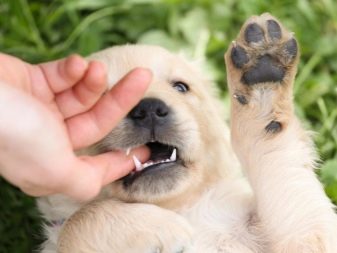
During the game, the puppies constantly bite each other - sometimes these bites can be neat, but it also happens that the kid who is playing out does it quite abruptly and painfully.
Young dogs do the same with a man, perceiving him as a participant in their game. If a puppy is well fed and healthy, then he always has a lot of energy, and he needs games almost all the time. Do not forget the fact that a dog's teeth change in the first year of life, so the animal has a physiological need to gnaw something in order to facilitate this process. Puppies, like children, can have sore or itchy gums, so biting and gnawing distracts them and relieves discomfort.
As puppies grow older, some of them have the habit of biting and gripping with their teeth anything that moves. To properly raise your four-legged pet, you need to pay special attention to this problem.
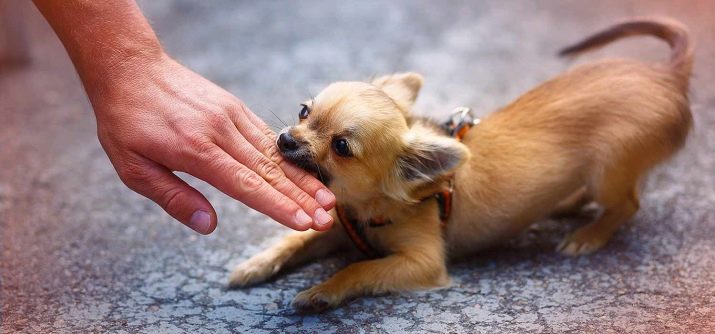
There are certain methods of training and teaching a dog, aimed at developing the skills of correct joint interaction and living with a person.
Effective methods
It is necessary to wean the puppy from biting as early as possible, ideally before the moment of changing his teeth. A growing dog must clearly learn that the owner and any member of his family are higher in the hierarchy, and it is forbidden to grab anyone by the legs or arms, even if the dog really wants to do it. A month-old puppy, as a rule, is still next to his mother, feeds on her milk, and his teeth are just beginning to erupt. Two-month-old puppies can already be transferred into the hands of their new owners, and this time is just the most important moment to teach the pet the necessary rules of behavior.
A small dog should already at 2 months learn that he cannot dominate the owner and other family members. The owner must show his dominance to the dog immediately and never give up his positions. If, while feeding the dog, the owner will be the first to eat his food and even be able to take any piece he likes from the dog's bowl, then according to the laws prevailing in the animal kingdom, this will mean that the owner is the leader, and he must obey.
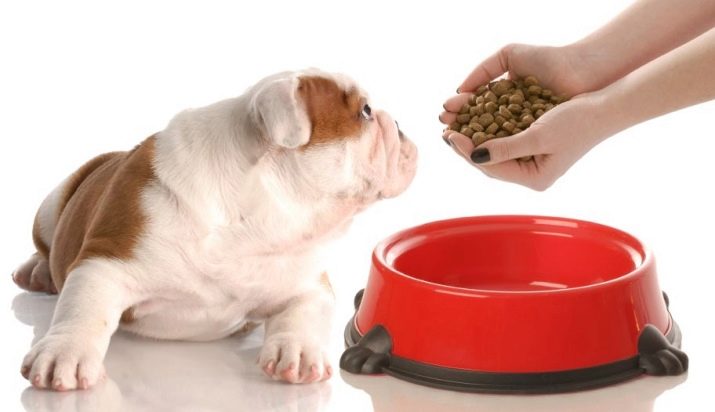
Another important consideration in puppy training is the separation of your territories.
The dog must immediately be taught to sleep in a specially designated place for this. The owner's bed is the leader's territory, and if the dog tries to penetrate and settle there, this will mean the seizure of your territory. Animals clearly know that the one who seizes the territory of the leader himself becomes the leader from that moment and can begin to dominate. This state of affairs cannot be allowed, since you will not be able to teach a dog anything with its dominance, and you will only encounter aggression from the dog.
Before you start teaching your four-legged friend, you need to understand the basic principles of his upbringing. First of all, you need to remember that during fun the puppy can only play with his toys, while you should not allow him to play with your hands. Immediately, as soon as the dog begins to bite your arms or legs, or grab and pull your clothes with his teeth, you must give him the command "Fu!" or "You can't!"
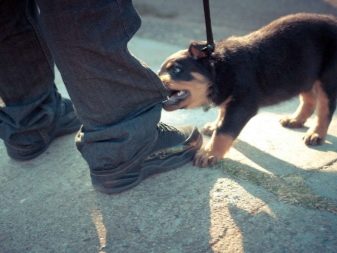
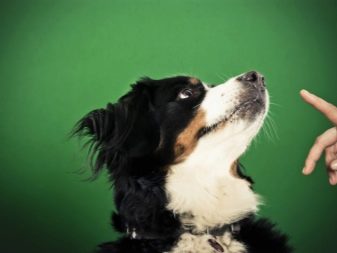
This is required to be done in a loud and stern voice, while there should not be smiles and laughter on your part.
If the kid is playing a lot and does not react to your commands, then you can calm him down by lightly clicking on the muzzle of a newspaper folded several times. But try to do this only in the most extreme cases, otherwise the dog will begin to be afraid of any of your sudden movements and waving hands.
In some cases, it is useful to take a raging puppy by the scruff of the neck and gently press it to the floor or slightly raise it for a few seconds - this is how their mothers do to babies in the wild, whom the young always instinctively obey.
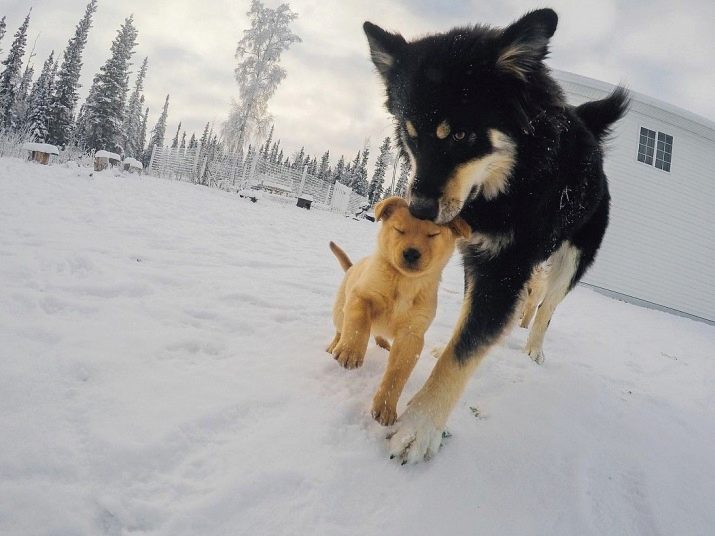
Sometimes, instead of a hand, you can put a ball or other toy into the puppy's mouth, but in this case there is a chance that the dog will not understand your goals and will continue its game.
If a grown-up puppy at 3 months old runs after you and actively bites on the legs or grabs the clothes with his teeth, this means that your dog has not learned the initial stages of training, and you will need to pay much more attention to this issue. Try to distract the pet's attention with a toy, but best of all, after the bite, abruptly stop contact with the dog and leave the room for 15-20 minutes.leaving her alone. So your pet will eventually realize and get used to the fact that after the bite, the owner will not continue playing with him.
At 4 months old, provided that you have given the proper attention to training your four-legged friend, the puppy should learn to play properly with people without hurting them from being bitten by the teeth. At this age, the dog must clearly understand that the owner is not its prey and the manifestation of hunting instincts towards him is unacceptable. In order for your four-legged friend to obey you, it is necessary to encourage all his correct actions and not support their violations.
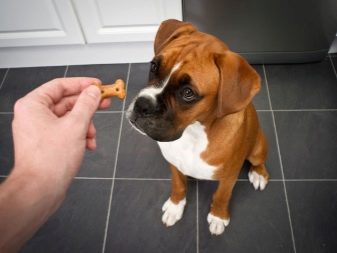
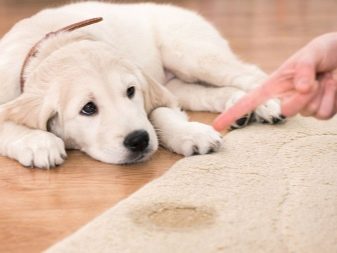
You should not deal with the dog if you feel irritated and aggressive, as the dog can easily feel your condition and will respond to you with counter aggression.
Thus, you can lose contact with your pet and lose his trust.
In the process of teaching growing puppies, experienced dog breeders focus on some effective techniques:
- do not provoke the puppy to aggression;
- do not walk next to the dog with bare arms and legs, thereby causing the pet to take an increased interest in you;
- do not allow the puppy to tear your clothes, gnaw on shoes, damage furniture;
- understand when a puppy bites for his own protection, and not punish him at this moment, but try to calm him down;
- always show the dog your negative emotions when bitten, but do not beat it at the same time;
- constantly observe the hierarchy and not allow the puppy to break it;
- to be consistent in training and giving commands - to reward good behavior, but not to reinforce the bad actions of the dog;
- do not let the dog feel that you are annoyed or unsettled by something, as the animals subtly feel your psychological mood, and sensing your weakness, they will immediately try to take advantage of this to "seize power."
At 9 months old, the dog must already master all the necessary skills and rules for contact with people.
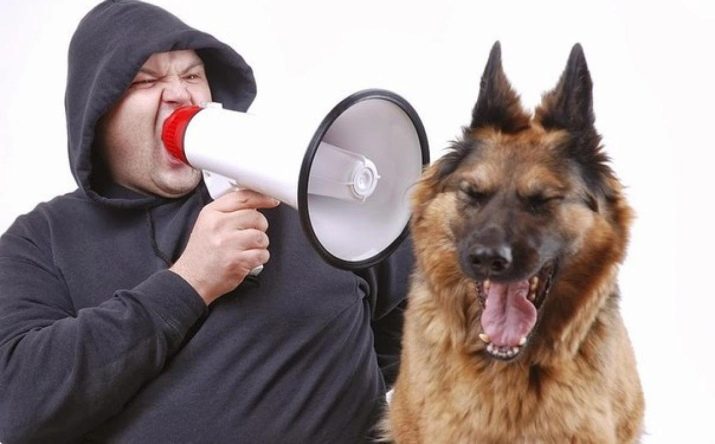
If at this age your pet growls when trying to pet him, chews on furniture, bites you and family members, this means only one thing - the dog has not received proper education from you.
In this case, over time, the animal may begin to show unreasonable aggression towards people. Do not naively think that the habit of biting people in a dog will go away by itself as it grows up.
This behavior is dangerous because not only you, but also your child, other family members can suffer from pet bites, it is possible that the day will come when your dog will begin to bite people on the street. An adult and mentally healthy dog should not behave like that, so if you did not cope with its upbringing in the first year of life, in the future, to correct this situation, you will have to seek help from experienced dog handlers.
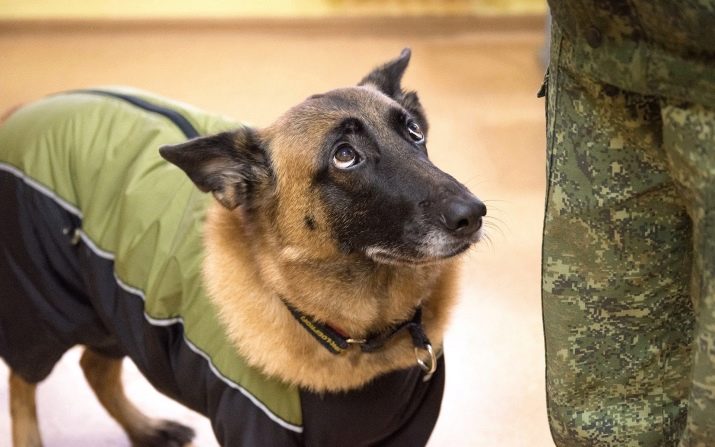
Major mistakes
It happens that inexperienced dog breeders, on their part, allow some inconsistent or incorrect actions when training a puppy, which reduce all their pedagogical efforts to zero. The most common mistakes when weaning a puppy to bite people by the arms and legs are the following.
- Attempting to start training your puppy before you have established a relationship of trust and a hierarchy has been built between the owner and the pet.
- Loud screaming and physical punishment. If you start giving commands during the puppy training procedure in an excessively loud and strict voice, this will scare the baby, and he will not understand from fear what you want from him. During practice, try to communicate with the dog confidently and calmly, and even if the pet does something wrong, you must learn that you should not yell at him. Also, during training, never physically punish your dog so as not to lose his trust in you, which will be very difficult to restore.
- Lack of rewards for the puppy doing the right thing. When your pet fulfills all your commands, then you must definitely encourage him for correct behavior: give a piece of treats in the form of a dog food pellet, pet the dog, and tenderly praise.
- Unreasonable reward for the behavior you want to wean your pet from. Never reinforce actions that your dog is doing wrong. On the contrary, for disobedience the puppy should be punished by your ignorance.
- Dominance of the dog over the owner. Sometimes large breeds of dogs feel in their owner his weaknesses - age, self-doubt, small stature and build. To build a relationship with such a pet, you need to behave correctly and maintain a certain distance in your relationship with the dog. Otherwise, the dog will begin to behave aggressively and may break out of obedience.
- When practicing with your dog, you do not need to concentrate on staring into his eyes. In nature, this means one thing - with this action you throw down a challenge to the animal, and if the next moment you look away, then you are showing him the position of the weaker, and the dog will see his prey in you. In this case, there can be no question of any obedience and training - the aggressive instinct of the hunter will wake up in the dog, it will begin to bite you.
- Improper behavior of the owner while playing with the dog or during its training. When interacting with your dog, use toys or special objects, but not your hands or feet. In addition, during the game you need to try not to provoke your pet to bite you. If you see that your dog has pressed its ears to its head, began to show its grin, it means that it no longer perceives everything that is happening around it as a game and begins to aggressively attack you. In this case, you must immediately stop playing or training and get out of contact with the animal.
- Never intentionally tease your dog or let other people do it. Trying to induce growls, grins, and aggressive attacks from the puppy, you train him to defend himself from you by broadcasting to him the image of the enemy in your face. Such associations between the owner and the pet are unacceptable, since friendly and trusting relationships should be established between you, and not hostile.
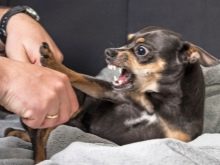
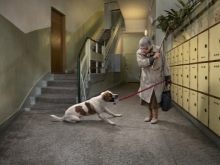
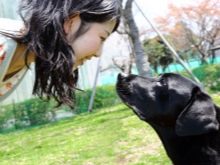
Developing the necessary skills in a dog requires patience, perseverance and an understanding of the basics of animal training from the owner.
When purchasing a dog for your child, you need to understand that you will not be able to get away from the process of raising an animal, since children see a companion for play in a puppy and will not be able to take on the role of an authoritative leader. The process of raising a dog must begin from the first days of its getting into your family. This should be done regularly, methodically fixing one skill after another.
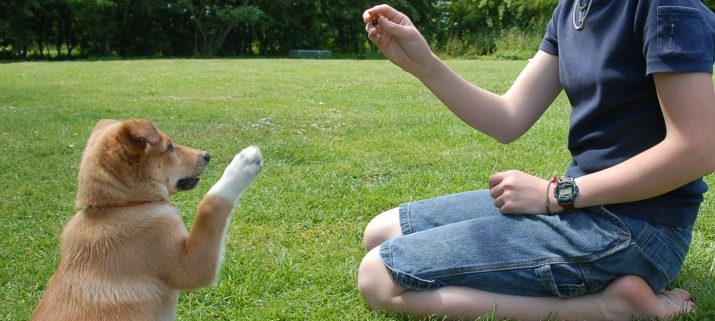
Tips from experienced dog breeders
To ensure that the process of teaching your puppy good manners is most effective, dog breeders advise dog breeders to study canine psychology before starting to train a pet.
By understanding the laws of behavior of an animal in a pack, it will be much easier for you to interact with your four-legged friend.
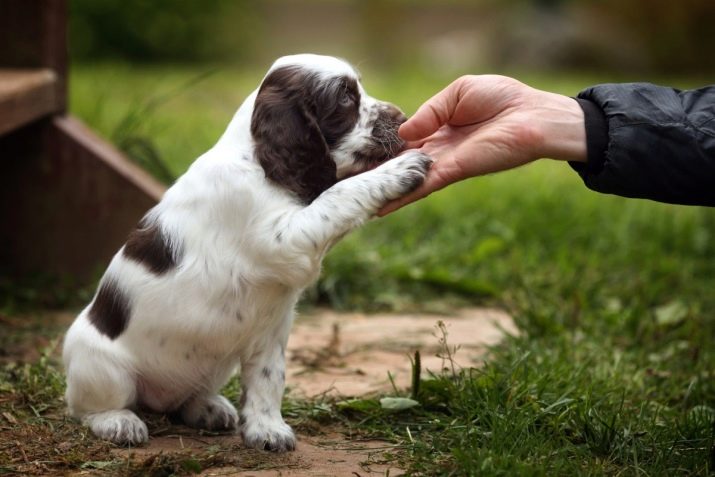
Experienced dog breeders advise adhering to some rules in the process of weaning a dog from biting.
- The moment the puppy grabs your hand and bites, try not to pull it out of the dog's mouth, on the contrary, relax as much as possible. Your sluggish and immobilized limb will no longer be of interest to the dog, and it will stop biting you. However, if at the moment of the bite you begin to make sharp movements and laugh cheerfully at the same time, the dog will perceive your actions as an encouragement to play, continuing its attacks.
- Offer your dog games that will distract him from biting people. For example, you can teach your puppy to play tug-of-war, or teach him the Aport! Command by throwing a toy away from you and encouraging the dog the moment he brings the item back to you. In such games, the dog satisfies its animal hunting instincts and learns to interact with the owner.
- Try to make sure that your four-legged friend always has enough variety of toys that he needs to replace from time to time with new ones - such a variety is necessary for the baby for his full development.
- If your pet is very temperamental and at first it is difficult for him to cope with the desire to bite your hands, then in this case, special means can help you. For example, applying clove or tea tree essential oil, apple cider vinegar, rubbing balm for colds, or other remedies that smell unpleasant for the dog on the skin of the hands, this will be a deterrent for the baby during play, and he will not want to bite you.
- To pique your puppy's interest in the toy and distract your toddler from your hands, brush the item with the broth found in the canned meat jar. As soon as your puppy starts to play and chew on the toy, give him a compliment and give him a small incentive treat.
- Do not try to protect your pet from the outside world, like a person, he needs socialization. The puppy should be able to interact not only with you, but also with other people and animals. The sooner the dog learns the correct contact, the better it will be for its further development, therefore, in the first year of life, you need to try to help it learn all the basic skills.
- When teaching a dog the skills of correct interaction with people, it is necessary not to cross the line when the dog loses the skill of the necessary protection with the use of teeth. An adult dog must have the ability to protect not only itself, but also its owner.
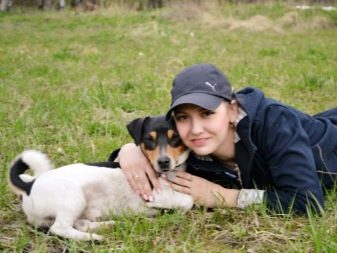
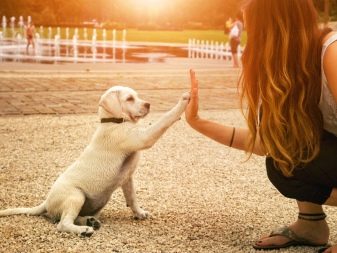
It is necessary for all family members to maintain the rules of behavior established for the puppy, for this it is necessary that the household knows and applies the basic commands that you taught the dog: "Come to me!", "Fu!", "To the place!". Raising a dog in the first year of life is a very crucial moment, it consists not only of weaning the puppy from grabbing you and biting you. The dog should know where his place is to sleep and rest, to understand that you cannot ask for food from the table when the whole family is eating, gradually get used to walking on a leash, and so on.
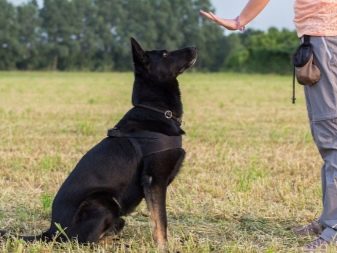
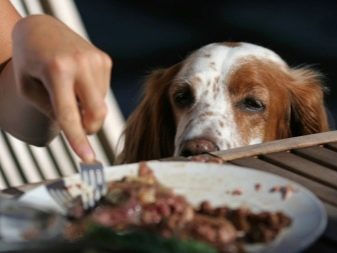
To learn how to wean your puppy from biting, see below.
